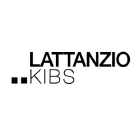WORKING WITH DG ECHO AS AN INTERNATIONAL ORGANISATION | 2021 - 2027
EXCEPTIONAL EXTREME OPERATIONAL CONDITIONS (EEOCS)
The existence of Exceptional Extreme Operational Conditions (EEOCs) in a country or region may prevent an International Organisation from using standard procedures in the Action’s record-keeping or operational implementation.
Once the existence of EEOCs is confirmed, alternative arrangements may be accepted in the implementation of the DG ECHO-funded action, where the absence of those alternative arrangements would make the delivery of life-saving assistance unreasonably difficult or dangerous.
WHEN DO EEOCS EXIST?
DG ECHO considers that EEOCs exist where one or more of the following criteria apply:
- access to the area is impeded by armed forces or other actors with the ability to obstruct humanitarian access;
- beneficiaries, aid workers, suppliers and/or service providers are at particular risk due to their involvement in humanitarian aid operations. This could include physical harm, arrest, detention, kidnapping or death, both when receiving, delivering or supplying aid;
- lack of access to essential services, such as electricity or communication networks.
Exceptional Extreme Operational Conditions (EEOCs) are different to force majeure events, since EEOCs, although exceptional and unavoidable, are extreme conditions that are likely to continue, meaning that are foreseeable. Meanwhile one of the key elements of force majeure events is that they could not be reasonably foreseen or expected.
It is not possible to determine upfront a complete list of alternative arrangements that may be necessary in Exceptional Extreme Operational Conditions, and each request must be assessed in the operational context. Nevertheless, EEOCs requests for alternative arrangements fall in 2 procedural categories:
| Alternative methods for record keeping | Ad hoc alternative implementation solutions |
| Relating to record-keeping at any stage of the Action’s implementation, including financial and operational reporting; procurement documentation; accounting; records on beneficiaries or local staff, purchases, or quality assurance; or other related documentary evidence. | Relating to wider aspects of the Action’s implementation, including procedures for the procurement of supplies and services; management of cash, compliance with local regulations; segregation of duties, or any other significant departure from the usual internal procedures or implementation standards. |
If, despite the use of alternative arrangements, the Action’s implementation becomes too dangerous or difficult, the use of Remote Management, or a Suspension for Exceptional Circumstances (or even a Termination) of the Action may be more appropriate.
HOW TO REQUEST EEOCs ALTERNATIVE ARRANEGMENTS
The International Organisation should immediately signal to their Desk Officer in DG ECHO if they may be facing exceptional extreme operating conditions. Depending on the operational context, the information may be provided either at proposal stage (new agreement) or at modification request stage (ongoing agreement).
After preliminary operational exchanges, a formal request for alternative arrangements may be submitted using the EEOCs Request Form (Annex II) which reflects:
- the existence, nature and scope of the EEOCs;
- usual procedures that could not be applied due to the existence of the EEOCs;
- alternative arrangements implemented under EEOCs; and
- sources of verification available to ensure the legality and regularity of expenditures incurred under EEOCs.
The International Organisation may refer to reputable sources to support the information provided in their EEOCs Request Form, this may include internal or third-party sources. The Form may be shared with the Desk Officer for feedback before official submission.
The final EEOCs Request Form must be uploaded as an Annex to the e-Single Form according to standard contract management procedures (via APPEL).
Moreover, the e-Single Form must be updated to reflect, as applicable, the EEOCs request in:
- section 14.2 – Request for specific derogation: in this section the International Organisation may request alternative methods for record-keeping and/or Ad hoc alternative implementation solutions. The pre-agreed EEOCs provision will be reflected in Article 7 of the Special Conditions of the HACA.





